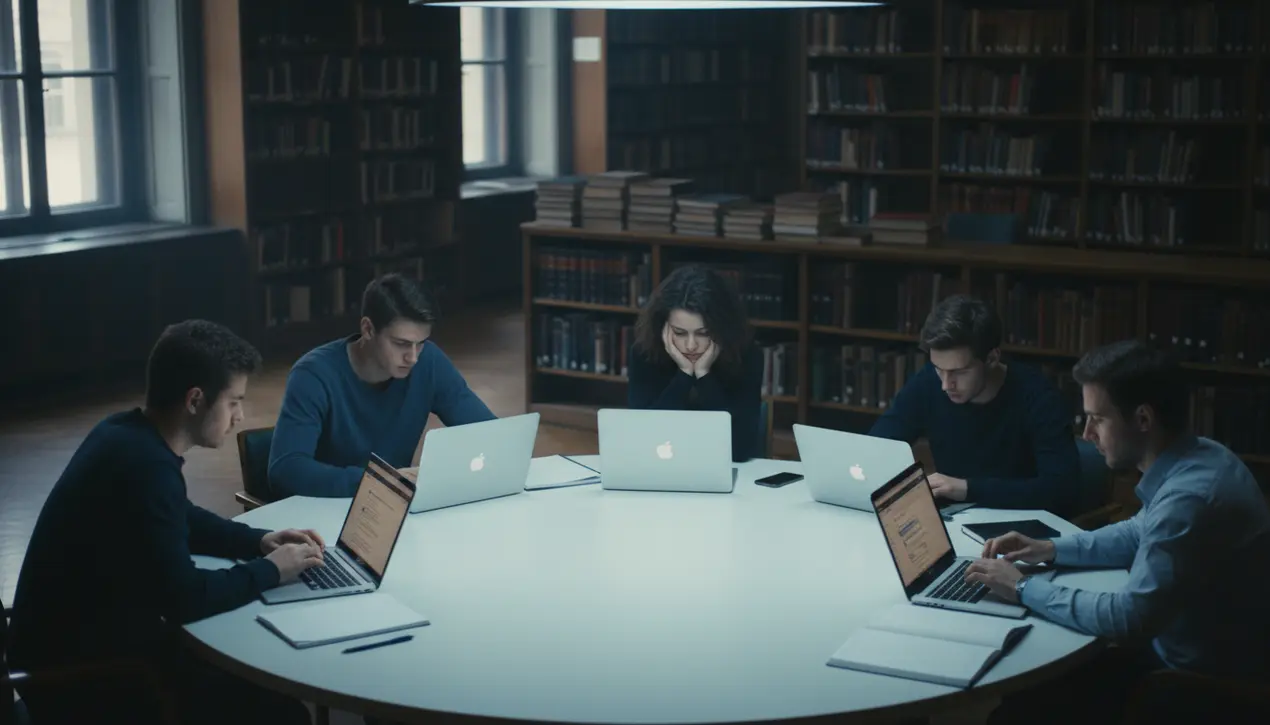
AIai safety & ethicsAI Regulation and Policy
Are Laptops and AI Negatively Affecting Student Intelligence?
MI
Michael Ross
1 day ago7 min read1 comments
The narrative that American students are experiencing a profound intellectual decline, unable to master fundamental skills in reading, writing, and mathematics, has moved beyond pandemic-era blame and found a new, formidable antagonist in artificial intelligence. While it's tempting to attribute this educational backslide solely to the disruptions of remote learning, the data suggests a more insidious, pre-existing trend that was merely accelerated by global events.We are now confronting a technological perfect storm where the initial promise of laptops as gateways to infinite knowledge has been superseded by their role as portals to endless distraction, a problem exponentially compounded by the advent of generative AI. This isn't merely about students watching TikTok in class; it's about a fundamental rewiring of cognitive engagement.The constant, dopamine-driven notifications from social media and messaging apps fracture attention spans, making deep, sustained concentration on complex texts or mathematical problems feel like a Herculean task. The very tools designed to make us smarter—to put the world's information at our fingertips—are, through their design, cultivating a mental environment hostile to the kind of critical thinking and knowledge retention that defines genuine intelligence.Now, enter AI. Where a laptop might have distracted a student from writing an essay, AI can now write the essay for them, creating an ethical and pedagogical quagmire.This goes far beyond simple cheating; it represents a potential atrophy of the foundational cognitive muscles used for synthesis, argument construction, and original thought. If a student can prompt a large language model to generate a passable analysis of Shakespeare, the incentive to struggle through the text themselves, to experience the frustration and subsequent breakthrough of comprehension, evaporates.This is the core of the crisis: we are outsourcing the struggle that builds intelligence. The situation evokes Isaac Asimov's prescient explorations of humanity's relationship with technology, where over-reliance on computational crutches leads to a dangerous forgetting of essential skills.However, to solely vilify the technology is to ignore our collective responsibility. The challenge for educators and policymakers is not to ban laptops or AI—a futile gesture akin to King Canute commanding the tide—but to fundamentally reimagine education for this new reality.This means developing pedagogical frameworks that integrate these tools to enhance, not replace, human cognition. It involves designing assignments that leverage AI for research and ideation but demand unique human perspective, personal experience, and critical evaluation for the final product.We must teach digital and AI literacy not as an elective, but as a core competency, empowering students to use these powerful tools as partners in thinking, not as substitutes for it. The consequence of inaction is a bifurcated future: a small elite who learn to command technology, and a vast populace commanded by it, their innate cognitive potential quietly eroded by the very devices they hold in their hands. The question is no longer whether laptops and AI are affecting student intelligence; it is whether we have the wisdom to guide that influence toward enlightenment rather than obsolescence.
#editorial picks news
#education
#technology
#artificial intelligence
#academic performance
#laptops
#cognitive impact
Stay Informed. Act Smarter.
Get weekly highlights, major headlines, and expert insights — then put your knowledge to work in our live prediction markets.
Comments
Loading comments...
© 2025 Outpoll Service LTD. All rights reserved.